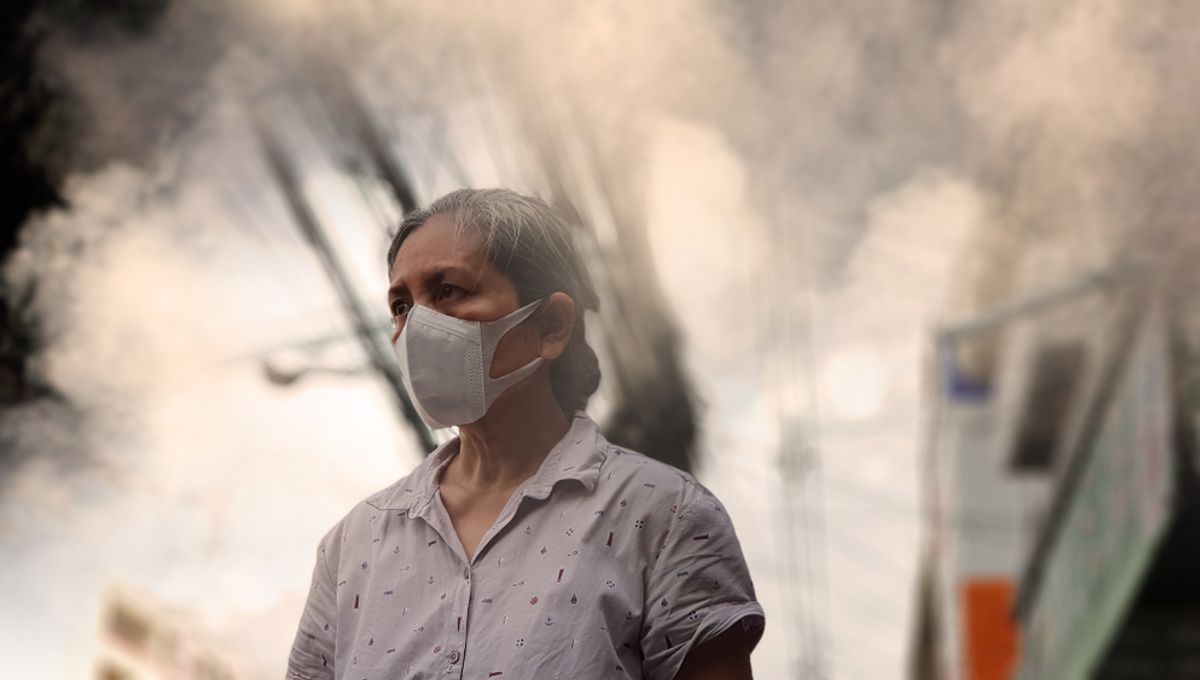
Air pollution may make antibiotic resistance worse, according to the first detailed global analysis of the relationship between the problems. Disturbing as it is that two major killers could be reinforcing each other, it also means that we can tackle both at once, if only we can find the will.
It’s a strange thing that so many people want to believe major killers like COVID-19 were made by humanity, despite considerable evidence the other way, but ignore the things we really are doing to ourselves.
Probably first among these is air pollution, which causes somewhere between 3 million and 9 million deaths a year, depending on estimates, making it among the biggest killers humanity has ever faced. Meanwhile, antibiotic resistance is thought to already be responsible for 1.3 million annual deaths, and that is expected to rise to 10 million. Although resistance is a natural evolutionary response to microorganism control, the over-prescription of antibiotics and their use in livestock feed have made it far worse than it needed to be.
Nevertheless, while our actions may be contributing to both, we might not expect them to be otherwise related. Professor Hong Chen of Zhejiang University has evidence otherwise. Chen and colleagues compared rates of PM2.5, particles 2.5 microns across or less, with test results for nine bacterial species and 43 types of antibiotics, along with other factors that could affect local antibiotic rates.
Even after controlling for factors such as sanitation services, health spending, and education levels, the team found that every 1 percent rise in particulate rates is associated with between 0.5 and 1.9 percent more antibiotic resistance. The variation depends on the pathogen being studied and the specific antibiotic, with E. coli’s resistance particularly influenced by air pollution rates and E. faecalis much less so. The relationship appears to be getting stronger with time.
Certainly, the relationship is correlational – it’s not the sort of topic you could easily do a randomized controlled trial on. Nevertheless, the data is sufficiently consistent that it appears unlikely to be badly wrong. Indeed, Chen concludes rates of air pollution were one of the largest single determinants of rising antibiotic resistance at 11 percent, ahead of health spending at 10 percent and drinking water services and frequency of antibiotic use at just 2.7 and 2.4 percent respectively. The contribution is even higher in very polluted regions such as North Africa.
The mechanism of the link is unclear, but bacteria can hitch a ride on small particles, allowing resistant bacteria that evolve at one location to spread more widely. It’s also possible that by weakening people’s immune systems, air pollution gives resistant bacteria a chance to gain a foothold where they might otherwise be wiped out. The presence of pollutants may also facilitate horizontal gene transfer between resistant and non-resistant bacteria.
“Until now, we didn’t have a clear picture of the possible links between the two, but this work suggests the benefits of controlling air pollution could be two-fold: not only will it reduce the harmful effects of poor air quality, it could also play a major role in combatting the rise and spread of antibiotic-resistant bacteria,” Chen said in a statement.
The team estimates that air pollution’s supercharging of antibiotic resistance caused 480,000 premature deaths in 2018. Nor were the victims all people already in poor health and likely to die soon of other conditions – the years of life lost are estimated at 18.2 million. Without intervention to control urban pollution, deaths will rise to 840,000 a year by 2050.
Pollution control, combined with a suite of other sensible interventions such as more cautious use of antibiotics and improved drinking water supplies, could save more than 600,000 lives a year from antibiotic resistance alone. This is without considering all the other benefits of cleaner air and water.
The study is published in the Lancet Planetary Health.
Source Link: Air Pollution And Antibiotic Resistance Are Uniting Against Humanity